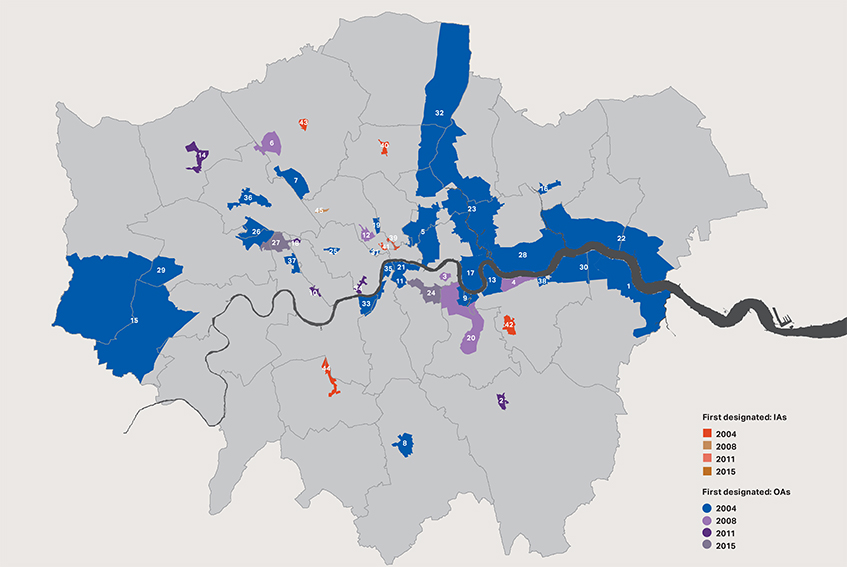The Greater London Authority has been criticised for the ineffectiveness of London’s opportunity areas – derelict or under-utilised brownfield land that has been identified as suitable for development.
A leadership shortfall, flawed expectations of public and private roles in bringing forward development, planning policy complexity and skills shortages were among the failures identified in a report by the London Urban Transformation Commission, a body set up by business group London First.
“With some notable exceptions, progress on their transformation into thriving communities to live and work has been patchy and, overall, slow,” said Stephen Warrington, chair of LUTC.
“The consequent economic and social opportunity cost in terms of homes and employment forgone is huge.”
Following an extensive consultation with developers and councils, the report is calling on the GLA to set up a delivery board for opportunity areas, chaired by the mayor of London, Sadiq Khan, with public sector and private sector non-executives.
The board would have the power to intervene in selected opportunity areas according to an agreed criteria to drive forward development.
An urban transformation team within the GLA should also be formed to implement the actions of the delivery board in OAs, the report suggests.
Greater fiscal devolution for London to support infrastructure investment and more clearly defined development objectives for the OAs are also recommended.
Rob Tincknell, chief executive of Battersea Power Station and LUTC commissioner, said the Nine Elms Opportunity Area demonstrated a “really good partnership” between the private sector and public sector working together to create a “deliverable planning framework”.
However, he said the problem they faced was that developers were left to sort out the “pipes and wires” power infrastructure when the GLA needed to step in to coordinate stakeholders (which they eventually did).
Lee Polisano, president of architect PLP and LUTC commissioner, said London needs a “champion at a political level”, whether that is an institution, body or individual to push through regeneration.
Responding to the report at London First’s property summit yesterday, London’s deputy mayor for planning, Jules Pipe, said the GLA would publish annual OA progress reports, starting this summer.
The draft London Plan, which was published in November, reinforces development on OAs as a priority and includes a commitment to creating planning frameworks that set out “a clear strategy for accommodating growth” and “assist in delivering specific infrastructure requirements.”
Warrington said the GLA’s response to its recommendations so far was “quite encouraging”.
He said the consultation period for the draft London Plan would be a good opportunity to discuss in greater detail with the GLA how its recommendations could be implemented.

To send feedback, e-mail Louisa.Clarence-Smith@egi.co.uk or tweet @LouisaClarence or @estatesgazette










